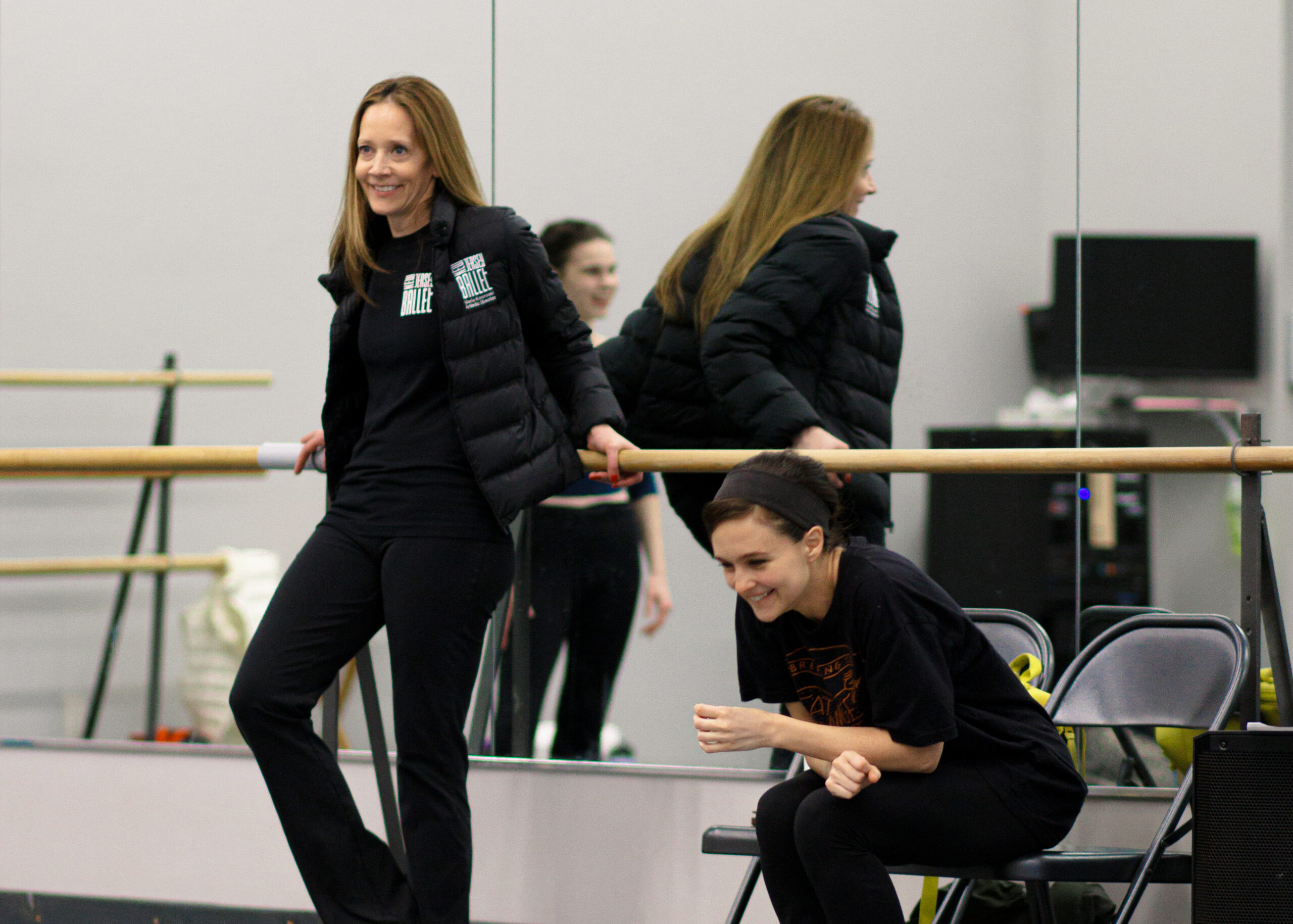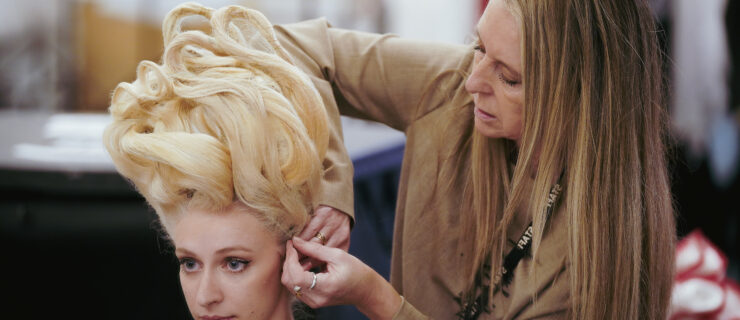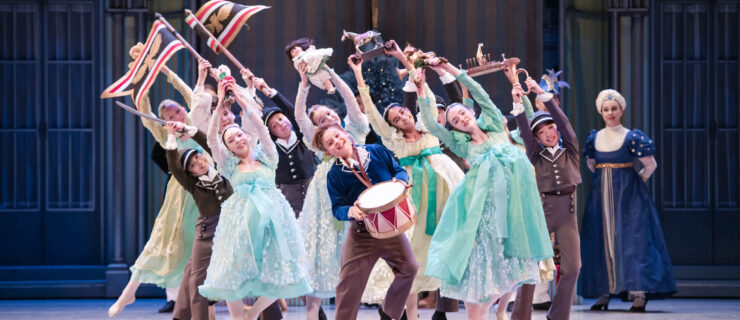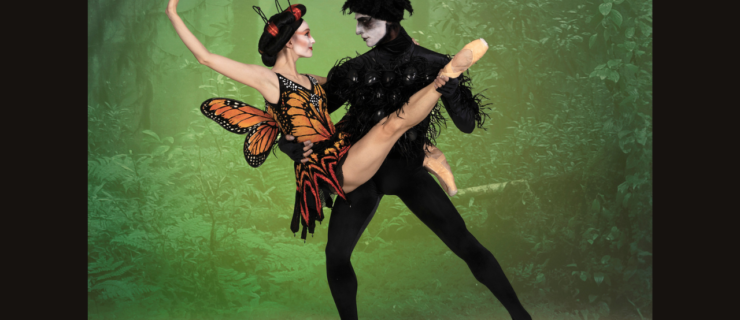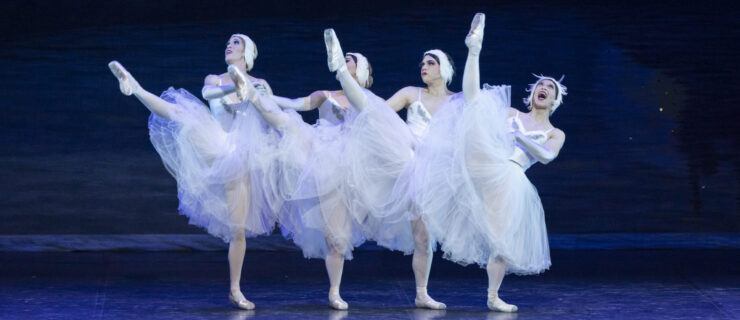Maria Kowroski and Lauren Lovette Reunite at New Jersey Ballet
While waylaid with an injury in 2019, New York City Ballet principal Maria Kowroski was given the chance to coach one of her younger colleagues—principal Lauren Lovette—for her debut as Odette/Odile. Kowroski was surprised by how much she enjoyed the experience. Watching Lovette take the stage from her seat in the theater, Kowroski couldn’t believe how excited and nervous she felt. “It’s a huge deal to prepare someone for a role like that, and I felt responsible being on the other side,” she says. Looking back, this was something of a watershed moment in her career trajectory. “I’d always thought: I really want to be able to give back to dancers,” says Kowroski. “Artistic directorship wasn’t something that immediately came to my head. I just knew I wanted to give back.”
They both retired from NYCB in 2021, trading in their pointe shoes for roles on the other side of the studio: Kowroski as the artistic director of New Jersey Ballet and Lovette as a choreographer, taking on freelance commissions in addition to her residency at the Paul Taylor Dance Company. During Kowroski’s first season, Lovette performed as a guest artist with New Jersey Ballet and donated one of her ballets. Now, she’s now back with a new work.
From May 3–4, New Jersey Ballet will celebrate its 65th anniversary with a triple bill at Newark’s New Jersey Performing Arts Center (NJPAC). The program includes Justin Peck’s Murder Ballades and Harrison Ball’s Purcell Suite, along with the world premiere of Lovette’s Jewel Box. Pointe caught up with Kowroski and Lovette to hear about their transitions into leadership roles, and what it feels like to work together again outside of the context of NYCB.
As dancers, you weren’t taught to use your voices in the way that both of your current jobs require. Have you experienced growing pains in learning to speak up?
Maria Kowroski: Using my voice has probably been the most challenging part of this job. I’m grateful that during my years at NYCB, they forced me to do some curtain speeches. And I had taken some acting classes while I was dancing. I’m naturally a shy person, and as dancers we’re used to mesmerizing people with our movement, not our voices. I want to say it’s getting easier, but I still get really, really nervous when I have to speak in front of people.
Lauren Lovette: I love language itself, I just don’t feel practiced in speaking out loud what I’m thinking or feeling on the inside. There are tools, like power posing or preparing, that you can know about intellectually, but nothing can prepare you for it other than doing it and practicing. Now I get on a panel, and I feel pretty good. Pretty much the same as I would talking to a bunch of friends.
Coming from School of American Ballet and NYCB, you were both trained in a very specific ballet vernacular. What’s it like working with dancers who weren’t trained in Balanchine style?
MK: Every dancer that I have in my company is from somewhere else, so there is no one uniform technique. I encourage them all to adapt to the style I give them in class, but instead of trying to make everyone dance the same, or to dance the way I was trained, I just want them to be more musical.
LL: I just come into a new place, take whatever’s there, and play. Modern dancers don’t have the same vocabulary at all. When I explain a step I want, it’s shifted from using a lot of ballet terminology to image-based vocabulary, trying to describe how something should look or feel. It’s like adding more tools and colors to the art project.
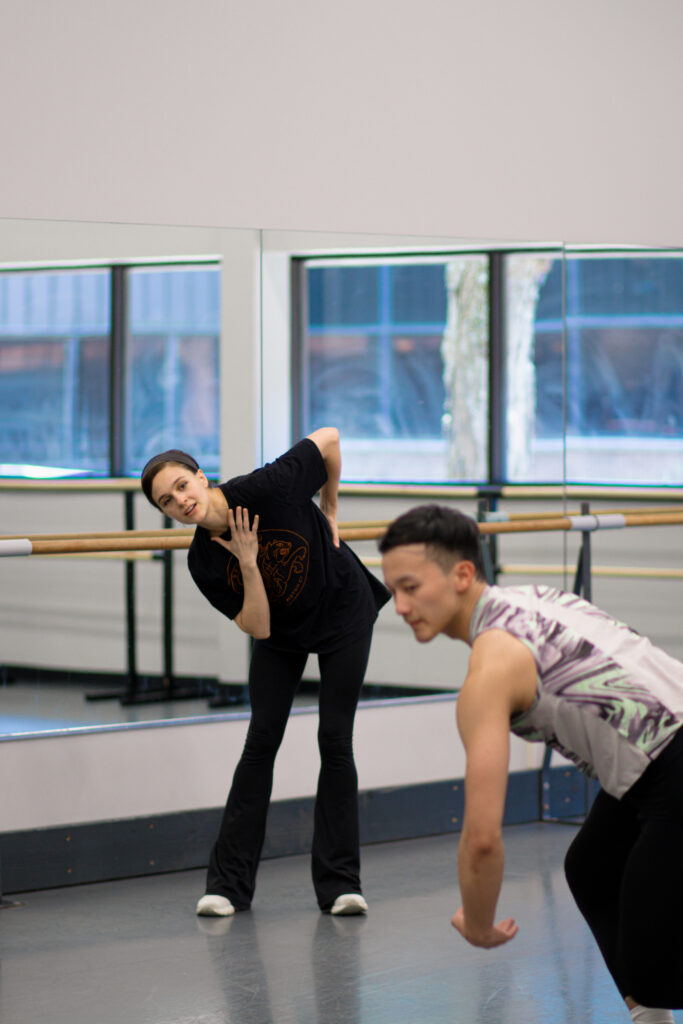
Maria, what are some ways that New Jersey Ballet has changed since you took over two years ago?
MK: This company has existed for 65 years, and a lot of people have never heard of it, which is very sad to me. We still have a long way to go, but we’ve put ourselves on the map a little bit more. I’ve introduced a lot of new repertory to the company. It’s exciting to be in the driver’s seat, helping the dancers find their way in those roles and make them their own. Just breathing new life into the entire institution, and bringing in a positive energy, as well. I think they needed that.
Lauren, can you talk a bit about your new ballet, Jewel Box? I know it’s set to a score by the composer Kevin Puts, who you’ve worked with before.
LL: It’s challenging music, refined and classical, but new at the same time. I was inspired by the inner workings of the music box: the comb, the winding key, the spring housing. It takes me back to being a little kid, where I used to open up that old antique music box and the little ballerina was in the middle spinning.
This upcoming program at NJPAC is made up entirely of works by NYCB alumni. How does that feel for both of you?
MK: I didn’t even think about them all being alumni when I put this program together. I’m grateful that they all allowed our company to do their work when we’re not in a position to pay them fully, because I want the company to be able to dance these wonderful pieces, and get pieces made on them.
LL: I second what Maria said. Harrison’s a good friend of mine, so there’s the personal element that makes me happy we’re on the same bill. I think it’s going to be a beautiful program. I’m proud to be a part of it.
Maria, will you feel that same sense of nervousness sitting in the audience that you felt when Lauren danced Swan Lake?
MK: Yes! It’s every performance that I watch from out front. It’s so different to be on the other side. I’m responsible for everything, every element that goes into the performance. It’s a lot of pressure, but I have faith. I know it’s all going to be good.
